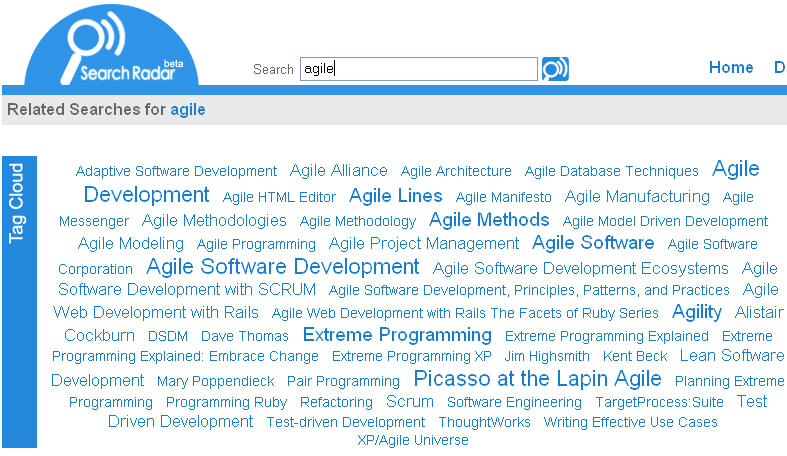
Anne Zelenka has once again nailed down the idea of how to work in a new world where there are far too many sources of information and no way to use technology to help you sift through that information. So you get on your raft and float along the current, and along the way you find the information you need to get a job done.
In The Future of Ignoring Things on Internet Evolution, Cory Doctorow says “I’ve come to grips with this — with acquiring information on a probabilistic basis, instead of the old, deterministic, cover-to-cover approach I learned in the offline world.”
One of the commenters on Cory’s article talks about navigation, saying “We need a sensible, extraordinary navigational system which helps the things we care about at the moment rise to the surface.” How amazing would your help system be if you could apply this technology to your product’s help?
My own journey – searching information
As for me, I am coming to terms with the idea that I’ll stumble upon useful information. But I tend to think I’m a pretty darn good researcher and that my Google Fu is strong, enabling me to find the best relevancy and authority in my information seeking. The more I travel on the river of information, though, the more I’ve come to appreciate the serendipitous discoveries.
My occupation – supplying information
Since as a technical writer, I write the loads of information that others need to sift through (or travel upon, choose your metaphor), this mind shift seems very important to follow. While Cory and Anne are miles ahead of most of the audience of the product I work on for my day job at ASI, my work on the OLPC project has a very different audience and that audience might be closer to Cory and Anne in their ability and desire to find information probabilistically. So for the OLPC project, documentation in a wiki seems appropriate. For ASI, only subsets of the overall audience might benefit from a wiki, such as the technical implementers using the Software Development Kit.
So, back to the basics it is – consider your audience while creating that flow of information. And keep an eye out for that extraordinary navigational system.
An example of serendipity in information finding
And now for the storytelling portion of this blog post. I often write blog entries and leave them in draft form for a while. This very post happened to be in draft form while I wrote and published my recent Wikislices entry. Sheece Baghdadi, who is a technical writer for Webaroo, saw my link to Webaroo, came to my blog, and posted a comment on my entry. I read Sheece’s comment, and I followed the link to Sheece’s blog, where the current post is about searchradar.webaroo.com, which attempts to address the very problem that “searching is easy but finding is hard.” With the Search Radar FireFox plug-in, additional search queries are suggested to you in a column to the right while using Yahoo or Google. I immediately saw a connection to this post, which was still in draft form. So I added this story to the post. What a journey.
 This type of suggested searches might be helpful to our end-users since the vocabulary varies widely for non-profits, organizations, or churches using our technology. Other searches might suggest a serendipitous path for our users to take to obtain the information they need. Take a look at the tag cloud that offers other search possibilities when you search for “agile” at searchradar.webaroo.com.
This type of suggested searches might be helpful to our end-users since the vocabulary varies widely for non-profits, organizations, or churches using our technology. Other searches might suggest a serendipitous path for our users to take to obtain the information they need. Take a look at the tag cloud that offers other search possibilities when you search for “agile” at searchradar.webaroo.com.
Blogs are a great way to find information probabilistically. I think there are other applications of technology that can help our end-users find information probabilistically as well, if they are ready for it.